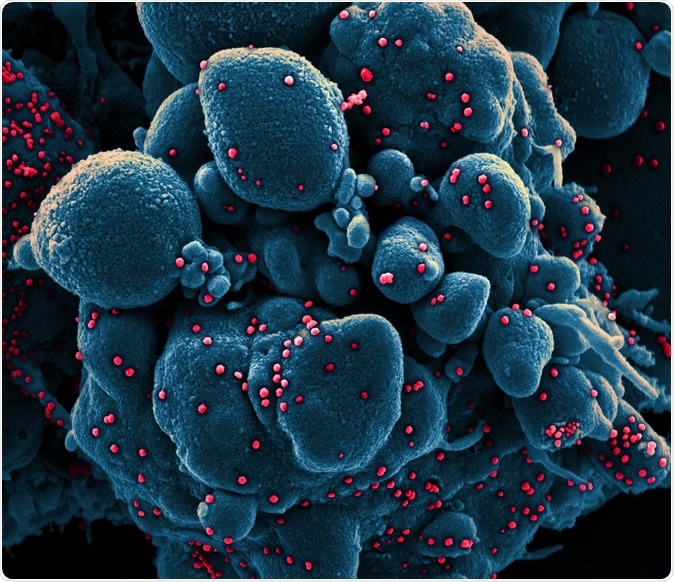Governments across the globe need to impose strict measures to implement lockdowns and quarantine procedures to fight the coronavirus disease (COVID-19) outbreak. The United Kingdom has imposed social distancing guidance, but some are still not following it appropriately.
Boris Johnson, UK's prime minister, has warned more robust measures if people do not take the health measures to fight COVID-19 seriously. In the UK, the contagious and deadly disease has so far taken 336 lives and has infected 6,726 people.
There was a sharp rise in cases and deaths in the country since Mar. 21. The NHS said that most of those who succumbed to the illness were from vulnerable groups, those who are more than 60 years old, and those with underlying health conditions.
The death of an 18-year-old individual with an underlying medical condition shows that even younger people may contract the illness and experience severe disease.

Novel Coronavirus SARS-CoV-2 Colorized scanning electron micrograph of an apoptotic cell (blue) infected with SARS-COV-2 virus particles (red), isolated from a patient sample. Image captured at the NIAID Integrated Research Facility (IRF) in Fort Detrick, Maryland. Credit: NIAID
Tougher measures
The more stringent measures will be implemented if people won't stay in their homes and avoid close contact with others. The issue emerged when photos over the weekend have shown groups of people spending time in parks, markets, and beaches, prompting alarm across the country.
Social distancing measures have been in place, which involves avoiding close contact with others. Health officials urge people to have at least 2 meters distance from each other. Parties, gatherings, and events have been canceled to prevent the spread of the coronavirus.
"We will think about this very actively in the next 24 hours. If people can't make use of parks and playgrounds responsibly, in a way that observes the 2-meter rule, then, of course, we're going to have to look at further measures," Johnson warned.
"Stay two meters apart. It's not such a difficult thing. Do it. It really will save lives," he added.
The prime minister's press conference came after some organizations and councils had moved independently to close public areas in an attempt to prevent widespread infections. The stern warning followed after appeals were made for more substantial and more intensive steps to enforce the guidelines.
When stricter restrictions are in place, it will shut down parks, restrict travel, and impose curfews, just like what Italy did in the middle of the health crisis. Italy may have inflicted the restrictions too late since its cases soared over the past week.
Italy now has a staggering 63,927 confirmed cases and 6,077 deaths, surpassing the death toll of China's Hubei province, with 3,153 deaths. Italy is the new epicenter of the outbreak as it has the highest number of infectious outside China. The United States and Spain have an increasing number of cases, with 43,847 and 35,136 infections, respectively.
WHO's advice for COVID-19 fight
Amid the increasing number of cases in Europe, which has been badly shaken by the pandemic, the World Health Organization said that lockdowns might not be enough to curb the virus spread. Testing remains an essential means to trace infected people and prevent them from infecting others.
The increasing availability of test kits has contributed to the sharp increase of confirmed cases across 167 countries. Also, WHO's director-general, Dr. Tedros Adhanom Ghebreyesus, encouraged all to look after both their physical and mental health during the health crisis. He suggested eating a healthy and nutritious diet to boost one's immune system, limiting alcohol intake and avoiding sugary drinks, stopping smoking, and engaging in regular exercise.
Lastly, he emphasized the importance of looking after one's mental health. The coronavirus global pandemic has sparked panic, worry, stress, and anxiety, taking a toll on one's mental health.
"Supporting other people in your community can help you as much as it does them, check-in with neighbors, family, and friends. Compassion is medicine. Listen to music, read a book, or play a game. And try not to read or watch too much news if it makes you anxious. Get your information from reliable sources once or twice a day," Dr. Tedros said.